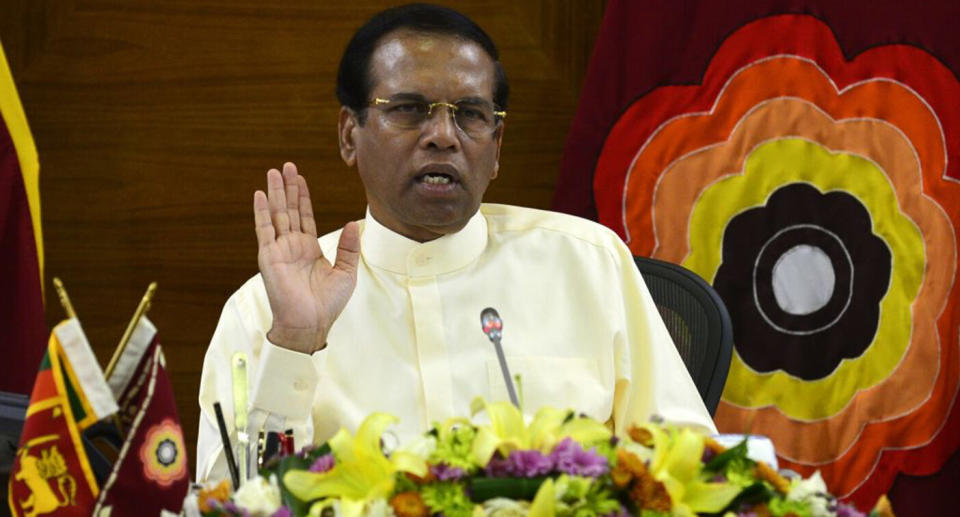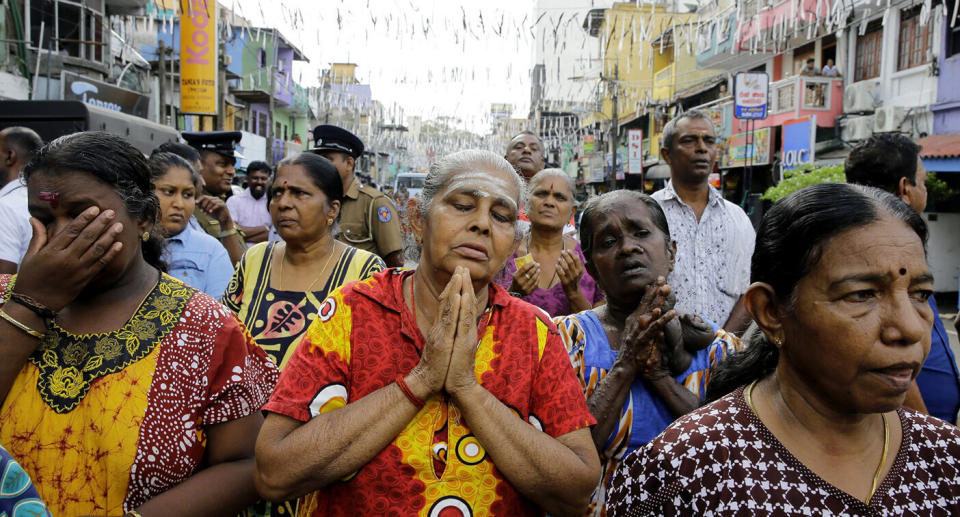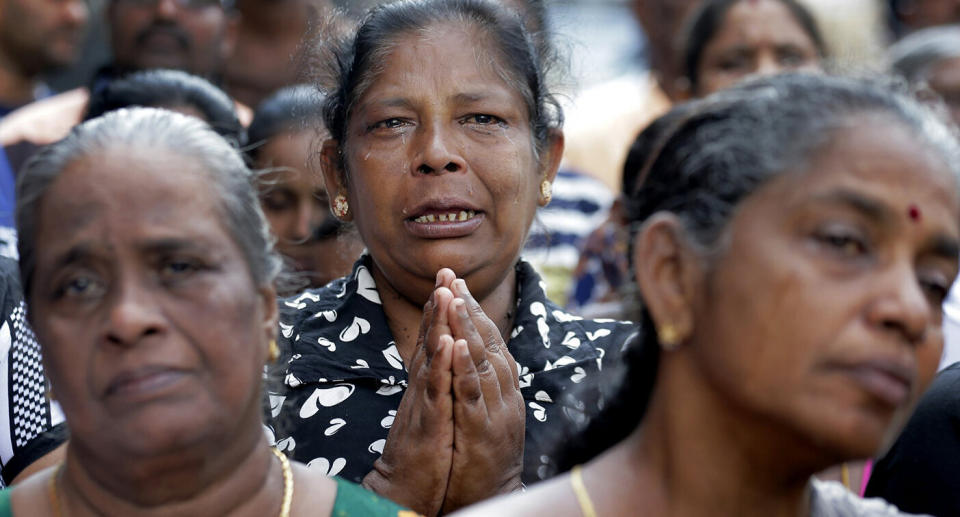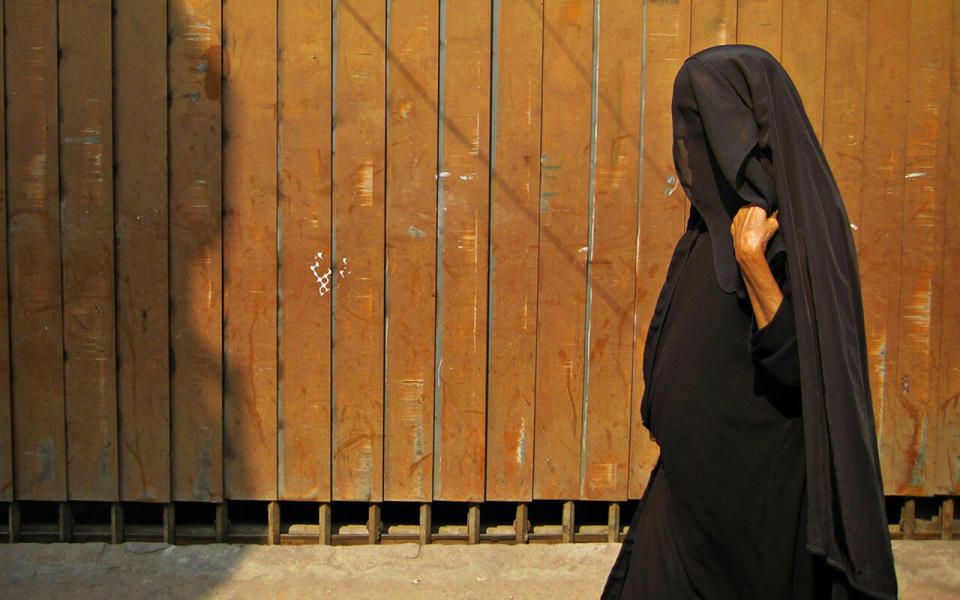Sri Lanka bans burqas following bombing attacks
Sri Lankan President Maithripala Sirisena has banned all kinds of face coverings that may conceal people’s identities.
The emergency law, which takes effect on Monday, prevents Muslim women from veiling their faces.
The decision came after the Cabinet had proposed laws on face veils at a recent meeting.
Sri Lanka's Catholics celebrated Sunday Mass in their homes by a televised broadcast as churches across the island nation shut over fears of militant attacks, a week after the Islamic State-claimed Easter suicide bombings killed over 350 people.
It had deferred the matter until talks with Islamic clerics could be held, on the advice of Sri Lankan Prime Minister Ranil Wickremesinghe.

In a rare show of unity, Sirisena, Wickremesinghe and opposition leader Mahinda Rajapaksa had attended the Mass in person.
Their political rivalry and government dysfunction are blamed for a failure to act upon near-specific information received from foreign intelligence agencies that preceded the bombings, which targeted three churches and three luxury hotels.
Police said they had arrested 48 suspects over the last 24 hours as checkpoints mounted by all of Sri Lanka’s security forces sprung up across this country of 21 million people.
Those arrested include two men whom authorities recently appealed to the public to locate.
The government also warned that it would crack down on those spreading false information and making inflammatory remarks.

Police, meanwhile, entered the main mosque of National Towheed Jamaat on Sunday afternoon, just a day after authorities declared it and another organisation terror groups over the bombings.
Police entered the mosque, located in Kattankudy in eastern Sri Lanka, and stopped an interview among foreign journalists and mosque officials.
Later, a senior police officer dispersed journalists waiting outside, saying authorities were conducting a “cordon and search operation.”
Police then left, locking up the mosque just before afternoon prayers were to start.
Authorities banned National Towheed Jamaat over its ties to Mohammed Zahran, the alleged mastermind of the Easter Sunday bombings.

Zahran and masked others had pledged their loyalty to IS leader Abu Bakr al-Baghdadi before carrying out the attacks, showing the danger the extremist group poses even after losing all its territory in Iraq and Syria.
On Friday night, a confrontation with police sparked a firefight with the militants in Kalmunai, some 225 kilometres northeast of Colombo.
Sri Lanka’s military said the gunfire and later suicide blasts killed 15 people, including six children.
On Sunday, the Islamic State group claimed three of the militants who blew themselves up there.

In a statement carried by the extremists’ Aamaq news agency, IS identified the bombers by their noms du guerre as Abu Hammad, Abu Sufyan and Abu al-Qa’qa. It said they opened fire with automatic weapons and “after exhausting their ammunition, detonated ... their explosive belts.”
The IS-aligned militants had created a bomb-making factory at the home, complete with laboratory-style beakers and thick rubber gloves.
A police investigator, who spoke to The Associated Press on condition of anonymity because he wasn’t authorised to publicly comment, said the mix of acids worsened the wounds suffered by those who didn’t immediately die in the blast.
“At the hospital a lot more people died. That’s why,” he said, nodding toward the acids. “It made the wounds incurable.”
Do you have a story tip? Email: newsroomau@yahoonews.com.
You can also follow us on Facebook, download the Yahoo News app from iTunes or Google Play and stay up to date with the latest news with Yahoo’s daily newsletter. Sign up here.



